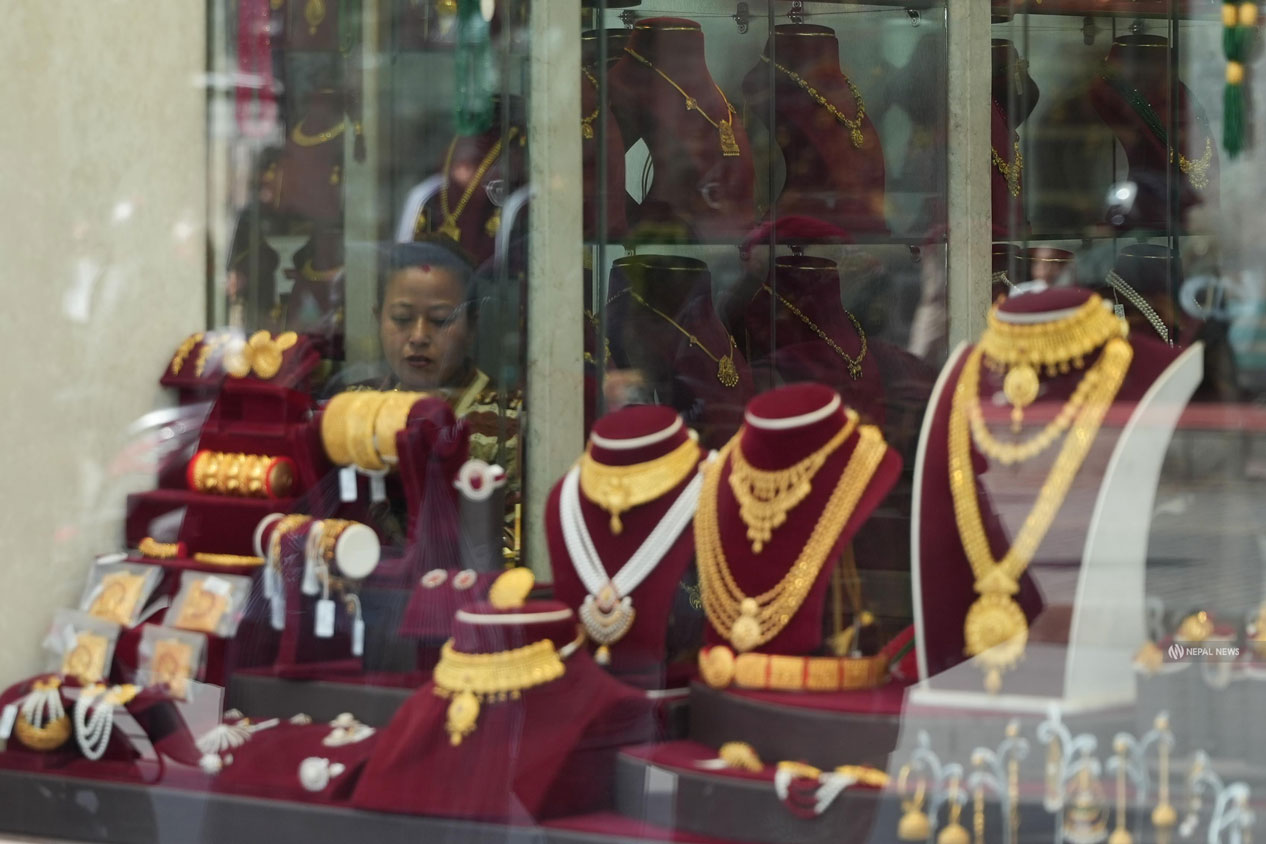

काठमाडौं। स्थानीय बजारमा आज सुनको मूल्यमा सामान्य गिरावट आएको छ ।
नेपाल सुनचाँदी व्यवसायी महासंघका अनुसार बिहीबार सुन प्रतितोला एक सय रुपैयाँले घटेर तिन लाख ६ हजार ५ सय रुपैयाँमा कारोबार भइरहेको छ। यसअघि बुधबार सुनको मूल्य ३ लाख ६ हजार ६०० रुपैयाँमा कारोबार भएको थियो।
यस्तै चाँदीको मूल्य भने बढेको छ । चाँदीको मूल्यमा प्रतितोला १३० रुपैयाँ वृद्धि भएको छ। आज चाँदी ५ हजार ३४० रुपैयाँ प्रतितोला कारोबार भइरहेको छ ।